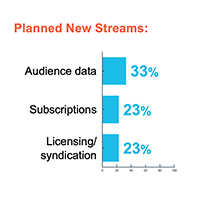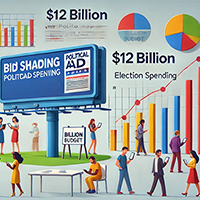Ad Ops
-
Decoder
Dissecting the Android Privacy Sandbox: A Critical Guide for Publishers
Dive into the Android Privacy Sandbox and its profound implications for mobile advertising. Learn about the benefits and challenges it poses for publishers and how it stacks up against Apple’s SKAdNetwork and Ad Attribution Kit.
-
Behind the News
What Apple’s Distraction Control Means for Publishers
Apple’s new Distraction Control feature could reshape digital advertising, affecting how publishers engage users and generate revenue. In this exclusive Q&A, Vegard Johnsen from eyeo explains what this means for the future of online content and advertising.
-
Behind the News
Dotdash Meredith’s Cookieless Conquest and the Publisher Pulse: Notes from AdMonsters Publisher Forum Boston
Here’s how Dotdash Meredith’s D/Cipher revolutionizes ad tech with cookieless targeting. Plus, gain key insights from AdMonsters Publisher Forum Boston on future-proofing revenue strategies in a shifting digital frontier.
-
cookies
Publisher Pulse: Key Revenue Drivers and Strategic Shifts for 2024-2025
As digital publishers gear up for 2024, the focus is clear: ramping up revenue through strategic investments and capitalizing on new growth opportunities. A significant 60% of publishers expect revenue growth, with 19% anticipating substantial gains. Direct deal advertising tops the list of opportunities, with 68% of publishers highlighting it as a critical revenue driver. Programmatic advertising, audience data monetization, and strategic partnerships also feature prominently, underscoring the diverse avenues publishers are exploring.
-
cookies
The Crucial Role of Data Clean Rooms in the Future of Digital Advertising
Worldwide, finding a consensus on nearly anything is just about impossible. Yet, when thinking about the way people interact with brands online, there are two glaring truths: consumers demand personalization and privacy in nearly equal measure. Data clean rooms can be a conduit for advertisers to continue offering highly personalized experiences while also respecting consumer privacy.
-
AI
What Should Mobile Marketers Know About the Android Privacy Sandbox Launch?
As Google’s Android Privacy Sandbox gears up for its anticipated 2025 launch, mobile marketers need to stay ahead of the curve. Remerge, a leading Demand Side Platform (DSP), is at the forefront of this transition, collaborating with Google and other ad tech partners, such as Verve, AppsFlyer, Adjust, and Singular, to ensure a seamless shift. Luckey Harpley, Staff Product Manager at Remerge, sheds light on what this means for the future of mobile marketing and how to navigate this new landscape.
-
cookies
The Data Warehouse Has Replaced Many DMP Functions, but Is It Enough for Publisher Data Monetization?
As data privacy regulations evolve, publishers are centralizing data within warehouses, but is it enough for data monetization? With DMPs falling short, the future lies in purpose-built applications that enhance activation, streamline audience building, and support complex identity resolution and collaboration. Dive into the challenges and opportunities for sustainable revenue growth in this privacy-centric era.
-
AI
Conquering the Streaming Wars: An Advertisers’ Guide to Reaching Audiences in Fragmented Media
Mark Jung, Vice President of Product at Dstillery, explores how advertisers can effectively navigate streaming with strategies like CTV integration, AI targeting, and leveraging clean room data to reach and engage audiences.
-
Behind the News
The Perils of Hashed IDs: FTC Reasserts They Are Not Anonymous
In a recent blog post, the FTC reiterated a critical privacy principle: hashed IDs are not anonymous. Despite some companies’ claims, hashing—a process that transforms data like email addresses or phone numbers into seemingly random strings—does not render data anonymous.
-
Decoder
How Bid Shading and the $12 Billion Political Ad Boom Could Impact Publishers
Explore how bid shading in political advertising affects publishers’ revenue, the associated risks, and strategic measures to mitigate these impacts during an election cycle with high political budgets.









